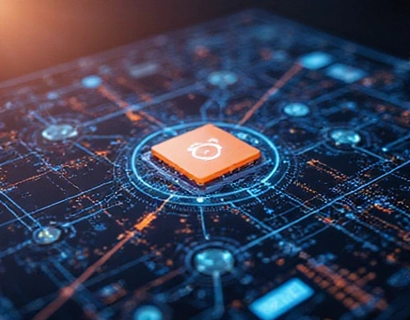Blockchain-Enhanced Voting Systems: Revolutionizing Electoral Processes
In recent years, the integration of blockchain technology into electoral processes has emerged as a transformative force, promising to revolutionize the way democracies function. Blockchain, known for its role in cryptocurrencies, offers a decentralized and immutable ledger that can significantly enhance the integrity, transparency, and efficiency of voting systems. This article delves into the intricate ways blockchain technology is reshaping electoral processes, providing a comprehensive overview of the benefits and challenges associated with implementing advanced voting solutions.
Understanding Blockchain in Voting Systems
At its core, blockchain is a distributed database that records transactions across multiple computers in such a way that the registered transactions cannot be altered retroactively. This characteristic, known as immutability, ensures that once a vote is cast and recorded on the blockchain, it cannot be changed or deleted. This feature is crucial for maintaining the integrity of the electoral process, as it prevents tampering and fraud.
Blockchain's decentralized nature means there is no single point of failure, reducing the risk of systemic errors or attacks. Each block in the chain contains a cryptographic hash of the previous block, a timestamp, and transaction data. This chaining mechanism ensures that any attempt to alter a block would require changing all subsequent blocks, which is computationally infeasible.
Enhancing Integrity and Trust
The primary advantage of blockchain-enhanced voting systems is the unparalleled level of integrity and trust they provide. Voters can verify that their votes have been recorded correctly and that the final tally accurately reflects the will of the electorate. This transparency builds confidence in the electoral process, which is essential for the health of a democracy.
Traditional voting systems rely on centralized authorities to manage and verify votes, which can lead to concerns about manipulation and lack of transparency. Blockchain eliminates the need for intermediaries by allowing voters to directly interact with the voting ledger. This direct interaction reduces the potential for human error and malicious intervention, ensuring that the voting process is as fair and accurate as possible.
Streamlining Elections
Blockchain technology can significantly streamline the electoral process, making it more efficient and cost-effective. One of the key areas where blockchain can make a difference is in voter registration and identification. By using blockchain to store and manage voter records, electoral bodies can ensure that voter data is secure, up-to-date, and easily verifiable.
For instance, blockchain-based voter registration systems can automate the verification process, reducing the administrative burden and minimizing the risk of duplicate or fraudulent registrations. Voters can use their personal blockchain identities to register and update their information, ensuring that the data remains accurate and secure.
Additionally, blockchain can simplify the vote counting process. With traditional paper ballots, counting can be time-consuming and prone to errors. Blockchain-enabled systems can automatically tally votes as they are cast, providing real-time updates and reducing the time required for manual counting and tabulation. This not only speeds up the process but also reduces the potential for human error.
Boosting Voter Engagement
Beyond enhancing integrity and efficiency, blockchain-enhanced voting systems can also boost voter engagement. The transparency and accessibility provided by blockchain can encourage more citizens to participate in the electoral process. When voters trust that their votes will be counted fairly and accurately, they are more likely to cast their ballots.
Moreover, blockchain can facilitate the development of innovative voting applications and platforms that make voting more convenient and accessible. For example, blockchain-based mobile voting apps can allow citizens to cast their votes from anywhere, at any time, as long as they have an internet connection. This flexibility can significantly increase voter turnout, especially among groups that traditionally have lower participation rates, such as young people and those living in remote areas.
Safeguarding Sensitive Data
Data security is a paramount concern in any voting system. Blockchain technology offers robust security features that can protect sensitive voter information from breaches and cyberattacks. The cryptographic algorithms used in blockchain ensure that data is encrypted and only accessible to authorized parties.
In a blockchain-based voting system, voter identities can be linked to encrypted votes, ensuring that individual votes remain anonymous and confidential. This anonymity is crucial for protecting voters from coercion and ensuring that they can cast their votes freely. Furthermore, the immutable nature of the blockchain ledger means that once a vote is recorded, it cannot be altered or deleted, providing a tamper-proof record of the election results.
Challenges and Considerations
While the benefits of blockchain-enhanced voting systems are clear, there are several challenges and considerations that must be addressed to ensure successful implementation. One of the primary concerns is the technological infrastructure required to support such systems. Electoral bodies need to invest in robust IT infrastructure, including servers, networks, and user interfaces, to facilitate seamless blockchain operations.
Another challenge is the need for widespread education and training. Both election officials and voters must understand how to use blockchain-based voting systems effectively. This requires comprehensive training programs and user-friendly interfaces to ensure a smooth transition from traditional voting methods.
Privacy and security remain critical issues. While blockchain enhances data security, it is essential to implement additional measures to protect voter privacy. This includes ensuring that the system complies with data protection regulations and that voter identities are not inadvertently exposed through the blockchain.
Case Studies and Real-World Applications
Several countries and jurisdictions have already begun experimenting with blockchain-enhanced voting systems, providing valuable insights into their potential and challenges. For example, Estonia, a digital pioneer, has implemented a blockchain-based voting system for its citizens living abroad. This system allows them to cast their votes securely and transparently, significantly increasing their ability to participate in elections.
In another instance, the city of Zug in Switzerland conducted a pilot project using blockchain to manage municipal elections. The project aimed to enhance transparency and reduce the risk of fraud. The results were promising, with voters expressing high levels of satisfaction and confidence in the system.
These case studies demonstrate that while blockchain-enhanced voting systems are still in the early stages of adoption, they hold significant potential for transforming electoral processes worldwide.
Future Prospects and Conclusion
As blockchain technology continues to mature, its applications in electoral processes are likely to expand. Future developments may include more sophisticated voter verification methods, enhanced user interfaces, and integration with existing electoral infrastructure. The key to successful implementation lies in a collaborative approach, involving government agencies, technology experts, and the electorate to address concerns and harness the full potential of blockchain.
In conclusion, blockchain-enhanced voting systems offer a promising solution to many of the challenges faced by traditional electoral processes. By providing unparalleled integrity, transparency, and efficiency, blockchain can help build a more trustworthy and participatory democracy. As more countries explore and adopt these innovative solutions, the future of elections looks brighter and more secure than ever.










































